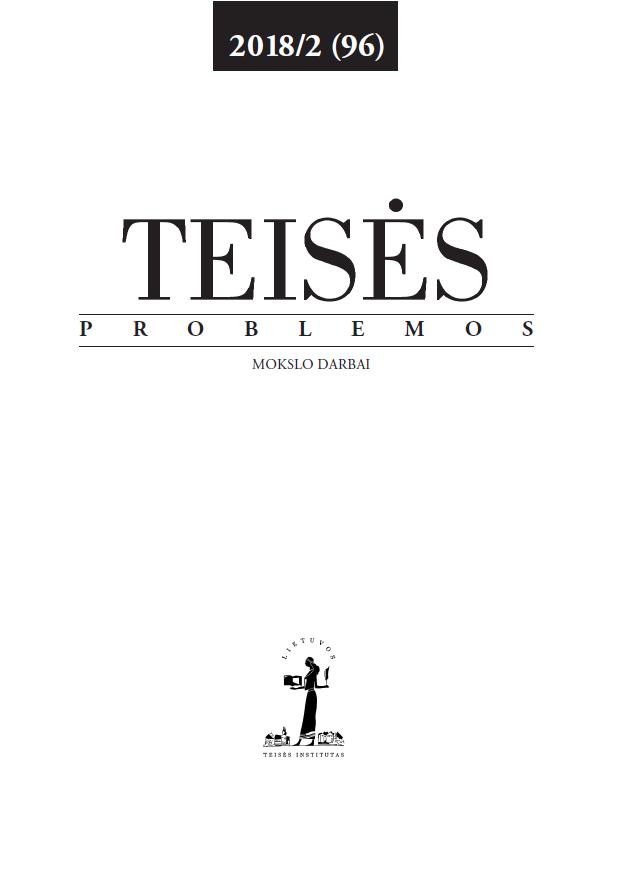Solidariųjų bendraskolių tarpusavio atgręžtiniai reikalavimai
Mutual Recourse Claims of Joint and Several Co-Debtors
Author(s): Albertas ŠekšteloSubject(s): Civil Law
Published by: Lietuvos teisės institutas
Keywords: personal right of recourse; subrogation;
Summary/Abstract: Having performed the obligation to the creditor in full, a co-debtor acquires two types of rights with regard to other debtors – a personal right of recourse and a subrogatory recourse (Article.6.9 of the Civil Code). The split of these rights is important at both the theoretical and practical levels. A personal right of recourse, which in Lithuania is enshrined in paragraph 1 of Article.6.9 of the Civil Code, establishes that a debtor who has performed a joint and several obligation has the right to demand from all other co-debtors in equal portions what he has fulfilled, less his own portion, which is closest to unjust enrichment. The legal nature of subrogation is more linked to the assignment of a right of claim. In other words, a person who has fulfilled an obligation to the creditor used to take over all the rights of the latter, including secondary, to the debtor. In the opinion of the author, the practical impact of distinguishing between personal right of recourse and the subrogatory recourse is that the performance of the joint and several obligation to the creditor in full or the creditor’s consent to accept the performance of the obligation in parts is necessary for the emergence of the subrogatory recourse. While the emergence of the co-debtor’s personal right of recourse does not require the fulfilment of the joint and several obligation to the creditor in full. According to the author, the Lithuanian Civil Code does not provide for subrogatory recourse in the event of partial fulfilment of the obligation to the creditor, unless the creditor agrees with that or the agreement between the parties provides otherwise, but only allows a personal right of recourse. The split into the personal right of recourse and the subrogatory recourse is also important in determining co-debtors’ remedies. As far as the personal right of recourse is concerned, its nature stems from unjust enrichment. Consequently, the defaulting co-debtor’s defence would be directed to the denial of either the joint and several obligation or the presumption of the co-debtors’ equal portions. As regards the subrogatory recourse, as it has been noted, it emerges only when the joint and several obligations to the creditor has been performed in full, unless the creditor assigns part of the right of claim to the debtor who has partially fulfilled the obligation, or such recourse is provided for by contract or by operation of law. Upon assignment of the right of claim by subrogation, the debtor who has acquired such a right also acquires the creditor’s rights, including all the rights related to the obligation that has been fulfilled by the relevant debtor, for example, the mortgage right. Then other co-debtors may use arguments in defence against this claim, which they could have submitted against the creditor when the claim had arisen.
Journal: Teisės problemos
- Issue Year: 2018
- Issue No: 96(2)
- Page Range: 44-58
- Page Count: 15
- Language: Lithuanian

